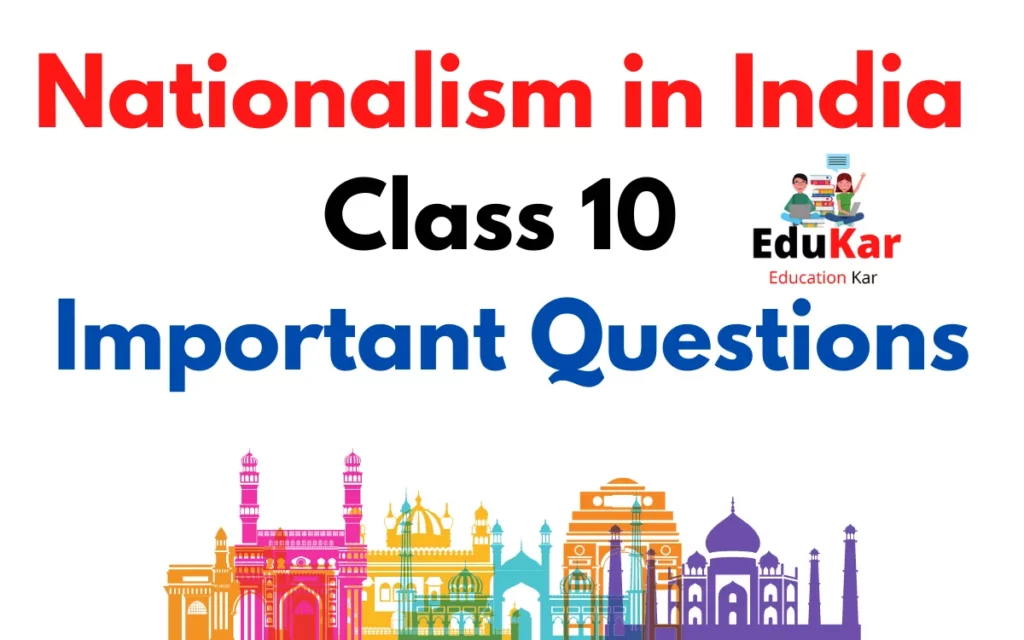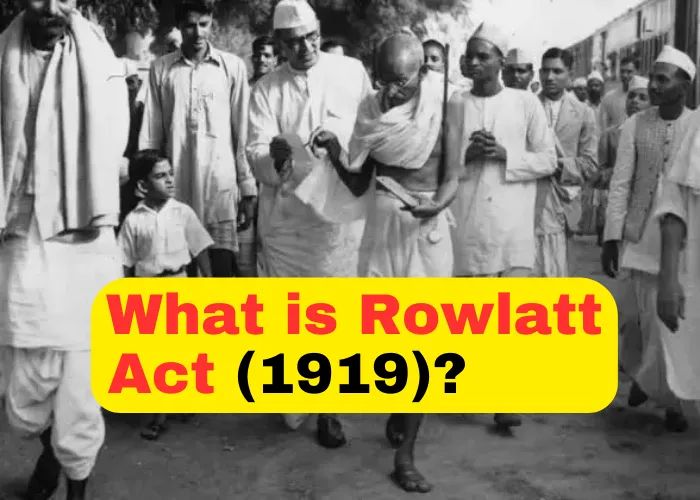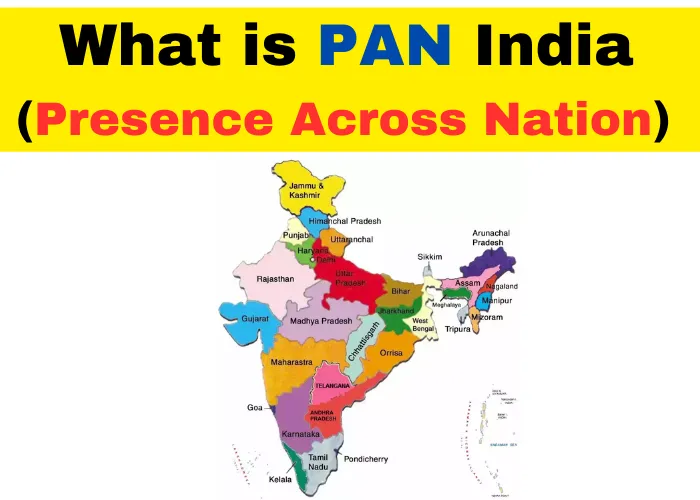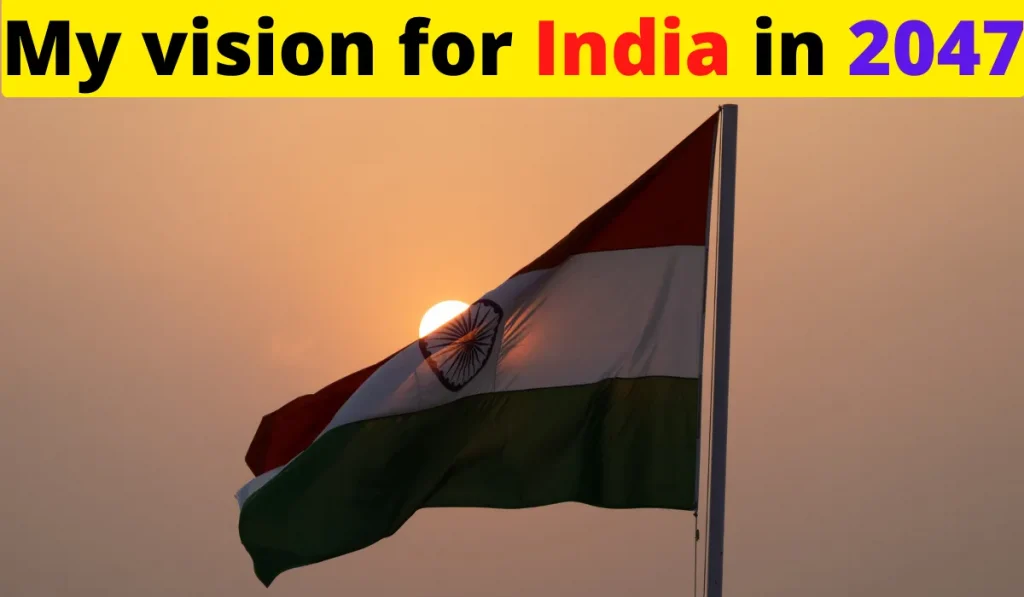Contents
- 1 Q1: What is the definition of nationalism in India?
- 2 Q2: How has nationalism evolved in India over time?
- 3 Q3: What are the roots of nationalism in India?
- 4 Q4: How does nationalism in India differ from nationalism in other countries?
- 5 Q5: What role has nationalism played in India’s independence movement?
- 6 Q6: How has nationalism influenced India’s political and social development?
- 7 Q7: How does nationalism impact the relationship between India and other countries?
- 8 Q8: How does religion play a role in Indian nationalism?
- 9 Q9: How has the idea of a Hindu Rashtra influenced Indian nationalism?
- 10 Q10: What impact has the caste system had on nationalism in India?
- 11 Q11: What role has language played in the development of nationalism in India?
- 12 Q12: How has the Indian National Congress influenced nationalism in India?
- 13 Q13: What role have regional and linguistic identities played in Indian nationalism?
- 14 Q14: How has globalization impacted Indian nationalism?
- 15 Q15: How has Indian nationalism been influenced by Western ideas?
- 16 Q16: What impact has colonialism had on nationalism in India?
- 17 Q17: How has nationalism impacted the relationship between India and Pakistan?
- 18 Q18: What is the relationship between Indian nationalism and economic development?
- 19 Q19: How does Indian nationalism intersect with issues of gender and sexuality?
- 20 Q20: How does nationalism impact the rights of ethnic and religious minorities in India?
- 21 Q21: What role has the media played in shaping Indian nationalism?
- 22 Q22: How does nationalism impact the foreign policy of India?
- 23 Q23: What is the relationship between Indian nationalism and regionalism?
- 24 Q24: What role has the military played in shaping Indian nationalism?
- 25 Q25: How has the Indian diaspora influenced nationalism in India?
- 26 Q26: How has the idea of a secular state impacted Indian nationalism?
- 27 Q27: What is the relationship between Indian nationalism and the Indian constitution?
- 28 Q28: What role has the intellectual community played in shaping Indian nationalism?
- 29 Q29: How does nationalism impact the relationship between India and China?
- 30 Q30: What is the future of nationalism in India?
- 31 FAQs

Q1: What is the definition of nationalism in India?
Ans: Nationalism in India refers to a political ideology that emphasizes the cultural and historical distinctiveness of the Indian nation and calls for India to be recognized as a sovereign and self-governing entity. It stresses the importance of a shared history, language, culture, and values among the people of India and seeks to promote national unity and pride. Nationalism in India also often includes a desire for greater political and economic independence and a stronger role in international affairs.
Q2: How has nationalism evolved in India over time?
Ans: Nationalism in India has evolved over time, reflecting changing political, social, and economic conditions within the country. In its earliest form, Indian nationalism was characterized by a desire for independence from British colonial rule, as well as a sense of cultural and political unity among India’s diverse population. After independence in 1947, Indian nationalism was characterized by a focus on national integration and the creation of a modern, secular, democratic state.
In recent years, Indian nationalism has been shaped by factors such as globalization, the rise of Hindu nationalism, and regionalism, among others. There have also been debates about the role of nationalism in shaping India’s foreign policy and its relationship with other countries. Overall, nationalism in India remains a complex and multifaceted phenomenon, with different strains and interpretations coexisting within the country.
Q3: What are the roots of nationalism in India?
Ans: The roots of nationalism in India can be traced back to the late 19th and early 20th centuries, when India was still a British colony. During this period, a growing sense of Indian nationalism emerged among the country’s educated middle class, inspired by ideas of self-determination and freedom from colonial rule. Key leaders in the independence movement, such as Mahatma Gandhi, Jawaharlal Nehru, and Rabindranath Tagore, played a key role in promoting the idea of a unified Indian nation and articulating a vision for an independent India.
The Indian National Congress, established in 1885, became the main political force behind Indian nationalism and played a central role in the independence movement. The congress brought together a diverse range of political and social leaders from across the country, united by their desire for independence and a shared vision of a future independent India.
The roots of Indian nationalism can be seen as a response to colonial rule and a desire for political and cultural self-determination among the Indian people.
Q4: How does nationalism in India differ from nationalism in other countries?
Ans: Nationalism in India differs from nationalism in other countries in several ways, reflecting the unique cultural, historical, and political context of the country. Some of the key ways in which nationalism in India is distinctive include:
- Cultural and Religious Diversity: India is one of the most culturally and religiously diverse countries in the world, and nationalism in India reflects this diversity, with different religious and cultural communities seeking to assert their distinctiveness within the larger framework of national unity.
- Historical Legacy of Colonialism: The historical legacy of colonialism has shaped Indian nationalism in important ways, with anti-colonial sentiments and a desire for independence from foreign rule being central to the independence movement and the development of modern Indian nationalism.
- Linguistic and Regional Identities: India is also characterized by a complex mosaic of linguistic and regional identities, with nationalism in India reflecting the interplay between national and regional identities.
- Political and Economic Developments: Political and economic developments, such as globalization, the rise of Hindu nationalism, and regionalism, have also had a significant impact on the evolution of nationalism in India in recent years.
Overall, nationalism in India is shaped by a unique combination of cultural, historical, and political factors, making it distinct from nationalism in other countries.
Q5: What role has nationalism played in India’s independence movement?
Ans: Nationalism played a central role in India’s independence movement, with the idea of a unified Indian nation being a key factor in the struggle for independence from British rule. Indian nationalism provided a unifying vision and a shared sense of purpose for the diverse political and social leaders involved in the independence movement, inspiring them to work together towards a common goal.
Key leaders of the independence movement, such as Mahatma Gandhi, Jawaharlal Nehru, and Sardar Vallabhbhai Patel, were committed to the idea of Indian nationalism and used it as a means of galvanizing public opinion and building support for the independence movement. The Indian National Congress, established in 1885, became the main political force behind Indian nationalism and played a central role in the independence movement, bringing together a diverse range of political and social leaders from across the country.
Nationalism also provided a powerful critique of colonial rule and a vision for an independent India, shaping the demands and goals of the independence movement. The independence movement was driven by a desire for political and cultural self-determination, and Indian nationalism provided a framework for articulating this demand and making it a reality.
Ans: Nationalism has had a significant influence on India’s political and social development since independence. Some of the ways in which nationalism has shaped India’s political and social development include:
- National Integration: Nationalism has played a role in promoting national integration and the creation of a unified Indian nation, despite the country’s diverse cultural, linguistic, and religious identities.
- Democracy: Indian nationalism has been closely associated with the development of democratic institutions and practices, with a strong commitment to democratic values and principles being a key aspect of Indian nationalism.
- Secularism: Indian nationalism has also been closely associated with the idea of secularism, with the idea of a secular, democratic India being central to the vision of the independence movement and to Indian nationalism more broadly.
- Economic Development: Nationalism has also influenced India’s economic development, with the idea of a self-reliant, economically independent India being a central aspect of Indian nationalism.
- Foreign Policy: Nationalism has also influenced India’s foreign policy, with a desire for a stronger role in international affairs and a more assertive posture in world affairs being central to Indian nationalism.
Q7: How does nationalism impact the relationship between India and other countries?
Ans: Nationalism has had an impact on the relationship between India and other countries in several ways:
- National Pride: Nationalism has contributed to a strong sense of national pride and self-assertiveness in India, influencing the country’s approach to international relations and its stance on key global issues.
- Regional Influence: Indian nationalism has also had an impact on the country’s relationship with its neighbors in South Asia, with a desire to assert regional influence and promote regional stability being central to Indian nationalism.
- Diplomacy: Indian nationalism has influenced the country’s diplomatic strategy, with a focus on promoting India’s interests and preserving its sovereignty being central to Indian nationalism.
- Economic Ties: Nationalism has also had an impact on India’s economic relationship with other countries, with a desire to promote economic independence and self-sufficiency being central to Indian nationalism.
- Defense and Security: Nationalism has also influenced India’s defense and security policies, with a focus on maintaining national security and protecting the country’s territorial integrity being central to Indian nationalism.
Q8: How does religion play a role in Indian nationalism?
Ans: Religion has played a complex and often controversial role in Indian nationalism. While Indian nationalism is generally associated with secularism and the idea of a unified, multi-religious nation, religion has also been a source of division and conflict in India.
- Unity: Religion has been used as a means of promoting national unity, with leaders like Mahatma Gandhi using religious themes and symbols to promote the idea of a unified India.
- Conflict: At the same time, religion has also been a source of conflict and division in India, with religious tensions and violence between different religious communities being a recurring problem.
- Secularism: Indian nationalism has generally been associated with secularism, with the idea of a secular state being central to the vision of the independence movement and to Indian nationalism more broadly.
- Cultural Identity: Religion also plays a role in shaping cultural identity in India, with religious communities serving as important sources of social and cultural identity for many Indians.
Q9: How has the idea of a Hindu Rashtra influenced Indian nationalism?
Ans: The idea of a Hindu Rashtra, or Hindu Nation, has had a significant impact on Indian nationalism and has been a source of controversy and division in the country.
- Hindutva Movement: The idea of a Hindu Rashtra is closely associated with the Hindutva movement, which advocates for a Hindu-centric view of Indian nationalism and seeks to promote Hindu cultural and political dominance in India.
- Political Representation: The idea of a Hindu Rashtra has influenced political representation in India, with Hindu nationalist parties like the Bharatiya Janata Party (BJP) seeking to promote Hindu cultural and political interests.
- Religious Tensions: The idea of a Hindu Rashtra has also contributed to religious tensions and conflict in India, with minority communities feeling threatened by the promotion of Hindu cultural and political dominance.
- Controversy: The idea of a Hindu Rashtra has been the subject of intense controversy and debate in India, with many criticising it as being inconsistent with the secular and democratic principles of Indian nationalism.
Q10: What impact has the caste system had on nationalism in India?
Ans: The caste system has had a profound impact on nationalism in India, shaping both the historical development of nationalism and contemporary debates over the nature of Indian nationalism.
- Independence Movement: The caste system was a major factor in the Indian independence movement, with leaders like Mahatma Gandhi using the movement to challenge the caste system and promote a vision of a unified, caste-free India.
- Social Inequality: The caste system has contributed to widespread social inequality in India, with members of lower castes facing discrimination and exclusion in many aspects of Indian society.
- Identity: The caste system has also shaped the way that people identify and relate to each other, with caste serving as an important source of social and cultural identity for many Indians.
- Contemporary Debates: The caste system continues to play a role in contemporary debates over the nature of Indian nationalism, with some arguing that Indian nationalism must take into account the caste system and address the social and economic inequalities it creates.
Q11: What role has language played in the development of nationalism in India?
Ans: Language has played a significant role in the development of nationalism in India. It has been a key factor in shaping the cultural identity of different regions and communities, and has been used as a tool for political mobilization and national unity. The use of language as a marker of cultural and ethnic difference has contributed to the formation of linguistic states and the demand for recognition and preservation of linguistic rights. Language has also played a role in the development of literary and cultural movements that helped to shape the national identity and imagination.
Q12: How has the Indian National Congress influenced nationalism in India?
Ans: The Indian National Congress has been one of the main political forces shaping nationalism in India. It played a central role in the Indian independence movement, and has been the dominant political party in India since independence in 1947. The Congress has been instrumental in promoting the idea of a unified and secular Indian nation, and has played a role in shaping policies and institutions that have helped to build a strong and cohesive national identity. The Congress has also helped to build a sense of shared history and cultural heritage among the diverse communities of India, and has played a role in promoting national integration through programs such as the promotion of national symbols and festivals. Overall, the Indian National Congress has been an important force in shaping the nationalism of India.
Q13: What role have regional and linguistic identities played in Indian nationalism?
Ans: Regional and linguistic identities have played a complex role in Indian nationalism. On one hand, they have served as important markers of cultural and ethnic difference, and have contributed to the formation of strong regional and linguistic movements that have sought recognition and preservation of their cultural and linguistic rights. On the other hand, regional and linguistic identities have also been subsumed under a larger national identity, as Indians have come to see themselves as part of a larger and more inclusive Indian nation.
The idea of a unified Indian nation has been promoted through programs and policies aimed at fostering national integration and promoting a sense of shared history and cultural heritage. At the same time, India has also recognized and accommodated regional and linguistic diversity through the creation of linguistic states and the recognition of regional languages and cultural traditions. As a result, regional and linguistic identities have coexisted with and contributed to Indian nationalism in complex and dynamic ways.
Q14: How has globalization impacted Indian nationalism?
Ans: Globalization has impacted Indian nationalism in several ways. On one hand, globalization has facilitated the spread of Indian cultural and economic influence beyond its borders and has contributed to the development of a global Indian identity. This has helped to boost India’s self-confidence and sense of pride as a nation.
On the other hand, globalization has also challenged traditional notions of Indian nationalism by exposing Indians to new and diverse cultural influences, and by raising questions about the compatibility of traditional cultural practices with modern and cosmopolitan values.
Additionally, globalization has contributed to economic and cultural homogenization, which has challenged the survival of regional and linguistic identities. The impact of globalization on Indian nationalism is therefore complex and multifaceted, reflecting both the opportunities and challenges posed by an interconnected and rapidly changing world.
Q15: How has Indian nationalism been influenced by Western ideas?
Ans: Indian nationalism has been influenced by Western ideas in several ways. During the colonial period, Indian intellectuals and political leaders were exposed to Western political and cultural ideas, including democracy, nationalism, and secularism. These ideas had a profound impact on the development of Indian nationalism, as Indian leaders adopted and adapted Western ideas to their own cultural and historical context.
For example, the idea of democracy was adapted to accommodate the needs and aspirations of a diverse and culturally rich country like India, and the idea of secularism was reinterpreted to reflect India’s pluralistic and tolerant cultural heritage. Western ideas also influenced the development of Indian political thought, and shaped the ideas and ideals that would come to define Indian nationalism. Overall, Western ideas have been an important influence on Indian nationalism, helping to shape the political and cultural landscape of India in profound and lasting ways.
Q16: What impact has colonialism had on nationalism in India?
Ans: Colonialism had a significant impact on nationalism movements in India. The British colonization of India led to the suppression of Indian culture and economy, which sparked a desire for self-rule among the Indian population. The Indian National Congress, a political party that advocated for Indian independence, was formed during this time. Additionally, the British policies of divide and rule, which encouraged religious and ethnic divisions among the Indian population, also had an impact on the development of nationalism movements in India. The experience of colonialism also led to the emergence of various anti-colonial ideologies, such as Gandhism, which emphasized non-violence and civil disobedience as a means of resistance against colonial rule.
Q17: How has nationalism impacted the relationship between India and Pakistan?
Ans: Nationalism has had a significant impact on the relationship between India and Pakistan, contributing to ongoing conflict and tensions between the two nations. The two countries have a long history of conflict over issues such as borders, religion, and national identity, and these conflicts are often fueled by nationalist sentiments. Nationalist rhetoric has also made it difficult for leaders of both countries to make compromises or engage in diplomatic efforts to resolve conflicts, as they must take into account the views and opinions of their nationalist constituencies.
Q18: What is the relationship between Indian nationalism and economic development?
Ans: The relationship between Indian nationalism and economic development is complex and multifaceted. On one hand, nationalism has played a role in shaping the country’s economic policies, with the Indian government pursuing a policy of self-reliance and promoting indigenous industries as a means of asserting national identity and independence. On the other hand, economic development has also influenced the nature and goals of Indian nationalism. The pursuit of rapid industrialization and modernization has led to the adoption of more pragmatic, development-oriented policies that prioritize economic growth over nationalist ideals. In recent years, the Indian government has continued to focus on attracting foreign investment, liberalizing trade, and boosting the country’s economic competitiveness, while also seeking to balance these goals with a commitment to preserving national sovereignty and independence.
Q19: How does Indian nationalism intersect with issues of gender and sexuality?
Ans: Indian nationalism intersects with issues of gender and sexuality in various ways.
- Patriarchy: Indian nationalism is often associated with patriarchal values and norms, which prioritize the interests and perspectives of men over those of women. This has contributed to a culture of gender inequality, with women being marginalized and excluded from political and economic life.
- Women’s movements: At the same time, women’s movements have been a significant force in shaping Indian nationalism, with women playing a key role in anti-colonial struggles and in demanding equal rights and representation.
- Sexual orientation and gender identity: Issues related to sexual orientation and gender identity have also become a significant part of the broader conversation around Indian nationalism. The Indian LGBTQ+ community has been fighting for equal rights and against discrimination, while conservative nationalist groups have often opposed these efforts, viewing them as a threat to traditional cultural and moral values.
Q20: How does nationalism impact the rights of ethnic and religious minorities in India?
Ans: Nationalism in India has had a negative impact on the rights of ethnic and religious minorities. It has led to instances of discrimination, violence, and marginalization of minority communities. Nationalistic ideologies often emphasize a homogeneous national identity, leading to the exclusion and persecution of minority groups. The government has also been accused of failing to protect the rights of minorities and of promoting policies that are biased towards the majority Hindu community. This has resulted in widespread concern about the erosion of secularism and the protection of minority rights in India.
Q21: What role has the media played in shaping Indian nationalism?
Ans: The media has played a significant role in shaping Indian nationalism in several ways:
- Spread of nationalism: The media has helped to spread nationalist ideas and sentiments among the Indian public, by providing a platform for political leaders and activists to express their views and by shaping public opinion through news and entertainment content.
- Shaping national identity: The media has also played a role in shaping national identity, by constructing and promoting a particular image of India and Indianness. This has included highlighting certain cultural traditions, values and symbols, and by downplaying or ignoring others.
- Representing regional and minority perspectives: The media has also been an important platform for regional and minority perspectives, allowing for the expression of diverse views and helping to promote a sense of national unity and diversity.
- Framing political discourse: The media has also influenced the framing of political discourse, by shaping public debate and opinion on important issues such as nationalism, economic policy, and social justice.
Q22: How does nationalism impact the foreign policy of India?
Ans: Nationalism can impact the foreign policy of a country by shaping its national interests and priorities. In India, nationalism has influenced the government to pursue an independent and self-reliant foreign policy, prioritizing the country’s sovereignty and national security. The government has also sought to promote India’s image as a major global power and to defend the interests of its citizens abroad. At the same time, nationalism can also limit a country’s ability to collaborate and build alliances with other nations, as the emphasis on national sovereignty may sometimes clash with international cooperation.
Nationalism can play both a positive and negative role in shaping a country’s foreign policy, and in the case of India, it has been a significant factor in shaping the government’s approach to international relations.
Q23: What is the relationship between Indian nationalism and regionalism?
Ans: Indian nationalism and regionalism have a complex relationship. While Indian nationalism emphasizes unity and a common identity among the diverse population of India, regionalism highlights the unique cultural, linguistic, and ethnic identities of different regions. At times, regionalism can challenge the idea of a unified Indian national identity and cause tensions. However, it can also be seen as a positive aspect of Indian diversity, and can be accommodated within a larger framework of Indian nationalism.
Q24: What role has the military played in shaping Indian nationalism?
Ans: The military has played a significant role in shaping Indian nationalism by contributing to the country’s sense of unity and national identity. The Indian military has participated in several wars and conflicts, including the independence struggle against British colonial rule, which has helped to forge a common national consciousness. Additionally, the military has been seen as a symbol of the country’s strength and resilience, and its actions have often been celebrated in popular culture and media. This has contributed to the idea of India as a proud and powerful nation, and has helped to shape a nationalistic sentiment among the population. At the same time, the military’s role in shaping Indian nationalism has also been criticized for promoting a narrow and aggressive definition of national identity, which can sometimes undermine the country’s commitment to diversity and pluralism.
Q25: How has the Indian diaspora influenced nationalism in India?
Ans: The Indian diaspora has influenced Indian nationalism in several ways:
- Reinforcement of cultural identity: The Indian diaspora has helped to reinforce and spread Indian culture, customs and values, contributing to a strong sense of national pride and identity.
- Economic contribution: The diaspora has made significant economic contributions to India, such as remittances, investment and technology transfer, which have helped to boost the country’s economy and its global profile.
- Political influence: Indian diaspora communities have also influenced India’s political landscape, by advocating for Indian interests and values abroad and by participating in political activities both in India and in their host countries.
- Soft power: The diaspora has also contributed to India’s soft power by promoting Indian culture, traditions, and values, and by showcasing India’s diversity, democracy, and stability to the world.
Q26: How has the idea of a secular state impacted Indian nationalism?
Ans: The idea of a secular state has had a complex impact on Indian nationalism. On one hand, secularism has been seen as a key component of Indian nationalism, reflecting the country’s commitment to religious tolerance and diversity. India has a long history of religious pluralism, and the secular state was established to ensure equal treatment for all religious communities and to prevent the dominance of any one religion.
On the other hand, secularism has also been challenged by some nationalist forces, who view it as a western import that undermines India’s Hindu cultural identity. These groups have sought to promote a more Hindu-centric nationalism, which has led to religious polarization and conflict in some parts of the country. The government has also been criticized for failing to protect the rights of minority communities and for promoting policies that are biased towards the Hindu majority.
Q27: What is the relationship between Indian nationalism and the Indian constitution?
Ans: The Indian constitution and Indian nationalism have a close relationship. The constitution, adopted in 1950, is the cornerstone of India’s national identity and serves as a basis for the country’s unity and diversity.
- Enshrinement of values: The constitution enshrines values such as democracy, secularism, equality, and justice, which are key elements of Indian nationalism.
- Protecting diversity: The constitution recognizes and accommodates the diversity of India’s population through provisions such as the recognition of multiple languages and the protection of minority rights.
- Unifying force: The constitution serves as a unifying force, bringing together the diverse regions, communities, and religions of India under a common set of laws and values.
- Empowerment of citizens: The constitution empowers citizens through fundamental rights and liberties, such as freedom of speech and religion, which are key components of Indian nationalism.
Q28: What role has the intellectual community played in shaping Indian nationalism?
Ans: The intellectual community has played a significant role in shaping Indian nationalism by:
- Ideological contributions: Scholars, writers, and thinkers have shaped the ideology of Indian nationalism through their works, which have helped to define the core values, principles, and goals of the national movement.
- Political discourse: The intellectual community has participated in political discourse, contributing to debates on issues such as democracy, secularism, and social justice, and shaping public opinion on these matters.
- Cultural revival: Intellectuals have also played a role in reviving and promoting India’s rich cultural heritage, which has helped to foster a strong sense of national identity.
- Education: The intellectual community has helped to educate and mobilize the public, by spreading ideas and values that are central to Indian nationalism.
Q29: How does nationalism impact the relationship between India and China?
Ans: Nationalism can impact the relationship between India and China by shaping the perception of each country towards the other, and by influencing their foreign policy decisions. In the case of India and China, nationalism has played a role in complicating their relationship, as both countries have a strong sense of national pride and have at times sought to assert their dominance in regional and global affairs. This has led to tensions and conflicts, particularly over border disputes, economic competition, and geopolitical influence.
Nnationalism can also drive cooperation between nations, as both India and China have sought to cooperate on regional and global issues such as climate change, trade, and security. The two countries have also sought to maintain a positive relationship based on mutual respect and shared interests, as they recognize the importance of stability in the region and the potential for economic collaboration.
Nationalism has had both a positive and negative impact on the relationship between India and China, and its influence will likely continue to shape their interactions in the future.
Q30: What is the future of nationalism in India?
Ans: The future of nationalism in India is uncertain and may be shaped by several factors:
- Political developments: Political developments such as changes in government, policy, and leadership can impact the trajectory of nationalism in India.
- Economic growth: The growth of the Indian economy and its integration into the global economy may lead to new challenges and opportunities for nationalism in India.
- Social and cultural changes: The rapid pace of social and cultural change, including urbanization and the growth of the middle class, may impact the expression and evolution of nationalism in India.
- International relations: India’s relationships with other countries, especially its neighbors, may also influence the future of nationalism in India.
- Political and social movements: The rise of new political and social movements, both within India and globally, may also impact the future of nationalism in India.
FAQs
What is nationalism in India?
A: Nationalism in India refers to the ideology that emphasizes the unity and cultural identity of the Indian people, and seeks to promote the interests of the nation. It is a complex concept that has been shaped by India’s history, culture, and political context.
How has nationalism impacted the rights of minorities in India?
Nationalism in India has sometimes had a negative impact on the rights of ethnic and religious minorities. Nationalistic ideologies often emphasize a homogeneous national identity, leading to the exclusion and marginalization of minority groups. The government has also been criticized for failing to protect the rights of minorities and promoting policies that are biased towards the majority Hindu community.
What role has the military played in shaping Indian nationalism?
The military has played a significant role in shaping Indian nationalism by contributing to the country’s sense of unity and national identity. The military’s participation in wars and conflicts has helped to forge a common national consciousness, and has been celebrated as a symbol of India’s strength and resilience. However, its role has also been criticized for promoting a narrow and aggressive definition of national identity.
How has the idea of a secular state impacted Indian nationalism?
The idea of a secular state has had a complex impact on Indian nationalism. Secularism has been seen as a key component of Indian nationalism, reflecting the country’s commitment to religious tolerance and diversity. However, secularism has also been challenged by some nationalist forces who view it as a western import that undermines India’s Hindu cultural identity.



![Corporate Accounting [Important Questions & Answers with MCQ] Corporate Accounting Important Questions & Answers](https://edukar.in/wp-content/uploads/2022/09/Corporate-Accounting-Important-Questions-Answers-1024x597.webp)
![Zoology Important Questions [Class 11th-English medium] Zoology Important Questions class 10 english medium](https://edukar.in/wp-content/uploads/2022/09/Zoology-Important-Questions-class-10-english-medium-1024x597.webp)


![Biology Class 10 Very important [Questions &Answers] Biology Important Questions with Answers class 10](https://edukar.in/wp-content/uploads/2022/09/Biology-Important-Questions-with-Answers-class-10-1024x597.webp)

![Web application and Security Class 10 [Questions Answers & MCQs] Web application Class 10 Questions & Answers](https://edukar.in/wp-content/uploads/2022/09/Web-application-Class-10-Questions-Answers-1024x597.webp)


![Digital Documentation Class 9 [Questions Answers & MCQ] Digital Documentation Class 9](https://edukar.in/wp-content/uploads/2022/08/Digital-Documentation-Class-9-1024x597.webp)



